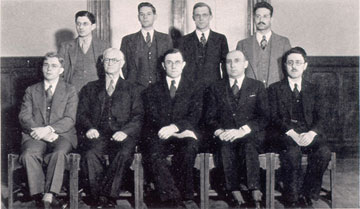Cohen's first major work was entitled Reason and Nature, and another work was similarly
entitled Reason and the Social Order. He avoided the term "experience" not at all in the sense in
which philosophers from Plato to Bradley have disparaged it (identifying it derogatorily with
"appearance" and excluding it from "reality"); he accepted it as the source and matrix of value but
not as its standard. From this, there has emerged the erroneous impression that Cohen's philosophy
was rationalistic, detached, and non-social. The little piece, a sort of epilogue to Reason and Nature,
bearing the startling title "In Dispraise of Life, Experience, and Reality," tended to confirm this
impression among those who read it literally and missed its fine irony and poignancy. It is a small
matter in itself, and perhaps of no account, but in his autobiography this "stern" philosopher tells us,
...in almost child-like fashion, how on several occasions he was moved to tears. And why should
not a philosopher who defined logic as a "study of the exhaustive possibilities of being" be moved to tears?
Israel Knox, "Odyssey of a Jewish Sage," Commentary, 7, No. 6 (June 1949), pp. 605-607. Review of A Dreamer's Journey, The
Meaning of Human History, Studies in Philosophy and Science, three works by Morris R. Cohen.



